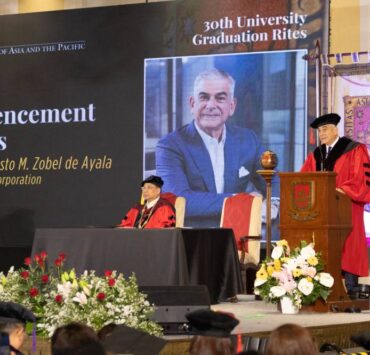Daunting government hiring system

Last week, the Civil Service Commission (CSC) announced that, as part of the celebration of its 125th anniversary, it will hold next month a nationwide government job fair.
It called on new graduates and those who want to shift careers to consider working in national government offices, local government units and other government agencies.
The job fair is welcome news to recent college graduates who want to work in the private sector but are unable to do so because of tight competition and strict requirements of proficiency in the digitized systems of doing business.
At present, employment at the national government level is, by and large, fairly sustainable on account of periodic adjustments in salary and the grant of clothing, transportation and medical assistance allowances.
That situation, however, applies only to government employees who have the proper civil service eligibility and are considered permanent (or so-called plantilla) staff.
They enjoy security of tenure and can seek assistance from the CSC in case they are mistreated by their superior or deprived of any of the benefits that are due to them under existing regulations.
But the circumstances are different for the least known underside of government service, namely, “contract of service” (COS) and “job order” (JO) employment arrangements that the CSC and Commission on Audit (COA) consider as acceptable and perfectly legal means to meet staffing requirements.
A COS employee (more popularly known as a casual) is hired on an as-needed basis for a period not exceeding six months, while a JO employee is engaged for a specific project with certain deliverables and whose hiring term may go beyond six months.
Except for the phraseology, those kinds of employment are actually two peas in the same pod because: there is no assurance of long-term employment; the employment periods are routinely extended when they expire; and, worse, the employees are not entitled to the usual government benefits, except the 13th-month pay.
As of 2024, there are approximately 676,000 JO employees and 260,000 COS employees, despite the fact that there are thousands of unfilled permanent positions in various government offices.
Since the costs of hiring and maintaining these employees are limited to their wages and 13th-month pay, the government offices concerned are able to enjoy some “savings” that they can use for official and unofficial purposes. Go figure.
The financial advantage of the discriminatory arrangement overrides any considerations about fair treatment of employees.
If the private sector does something similar, expect the employer concerned to be hounded and sued by the Department of Labor and Employment for gross violation of the law, which requires employees who perform work that is beneficial or essential to the employer to become regular employees after they have worked for the usual six-month probationary period.
An adverse finding would make the employer pay back wages and other employment benefits to the affected employee.
But as things stand at present, that rule does not apply to the government with regard to COS and JO employees who are deprived, with the consent and approval of the CSC and COA, of the security of tenure that the Labor Code provides to employees in the private sector.
Think about it; it is against the law and public policy if private employers refuse or fail to regularize the employment status of their employees after they have completed their probationary period, but it’s permissible if the same is done by national or local governments.
Shouldn’t sauce for the goose also be sauce for the gander?
Whoever conceived of the COS and JO schemes must have thought that the stomach of the affected employees has less nutritional needs than those of permanent government employees.
When the CSC launches its job fair next month, it should state clearly the character of the vacancies to be filled up—COS, JO or permanent—so prospective applicants are put on notice early on what they may be getting into.




















